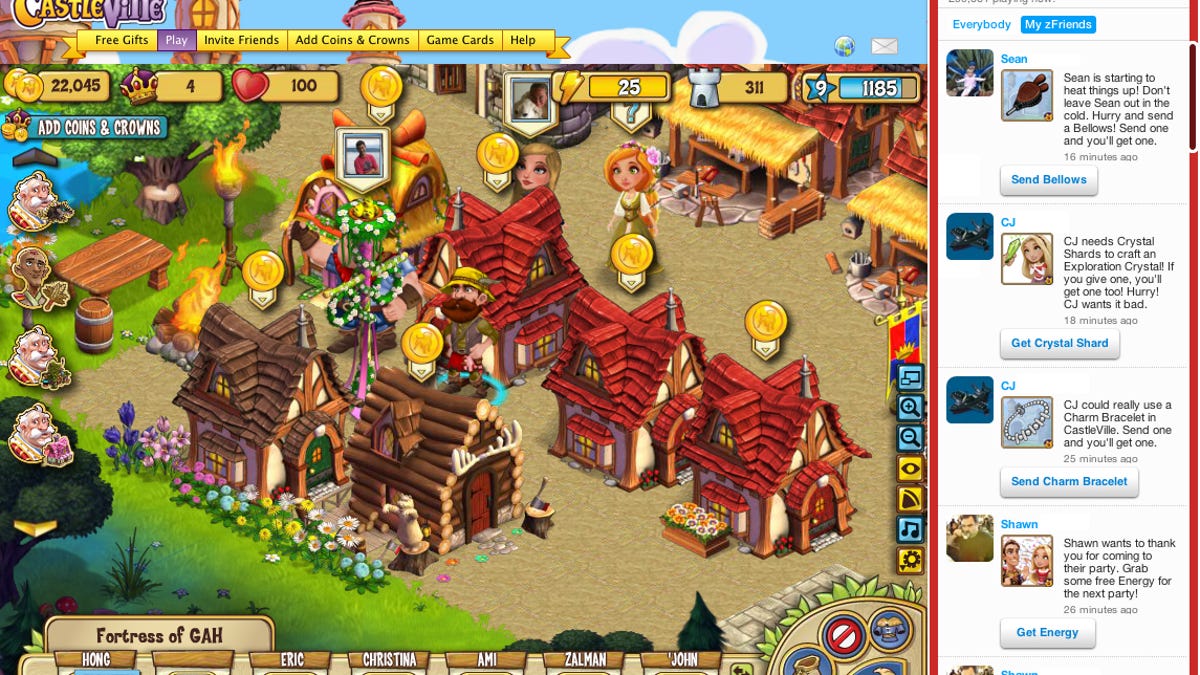Are Facebook and Zynga about to break up?
Facebook and Zynga's fortunes are tightly linked. Zynga's latest changes challenge the relationship to move into a new, more mature state.

Zynga today is announcing a big new plan to seduce Facebook's users and steal its third-party developers. Does this mean it's the end of the relationship between the two companies?
It doesn't. The companies' fortunes will remain deeply intertwined for the foreseeable future. An emancipated Zynga would be bad for Facebook, but Zynga can't exactly make it alone, either.
If Zynga could easily leave Facebook, it already would have; paying Facebook's rent is not cheap (according to Facebook's IPO filing paperwork, Zynga accounts for 12 percent of Facebook's revenue). But there are ways that Zynga can back out some of the hooks attaching it to Facebook. And that's what it is doing today.
Step one: For its gaming users, Zynga is creating a secondary social network on top of the Facebook network. Zynga calls it a "superset," and it is indeed larger and more valuable to a game player than the Facebook network since it helps players connect with people who are not in their actual social circles.
Zynga players will be able to have their game-based social interactions on Zynga.com, and bypass Facebook entirely. Zynga is giving users good reasons to use the bypass, too: More real-time communication and non-interruptive chat helps people progress faster than if they play on Facebook itself.
The time people spend on Zynga.com is time not spent on Facebook, obviously. That equates to advertising not seen on Facebook, less exposure to non-Zynga apps, and distracting (non-game) communications left unviewed while the user is in-game. Zynga.com could have a noticeable negative effect on Facebook traffic, and thus revenues.
It's not like Zynga is shuffling users off Facebook completely, though, or even trying to. Facebook has nearly a billion users, four times Zynga's claimed 240 million monthly players. Those Facebook users not currently engaged with Zynga are Zynga's future users. Zynga needs to keep its Facebook connections strong.
Zynga is building a parallel social space to Facebook, not a replacement. It can't replace it's Facebook platform, and has no reason to try to create its own, completely independent social network. Today's move is about being the final touch point to the users it has, instead of letting Facebook run the experience as it has so far.
For Facebook, there is no simple way to counteract this development, other than to encourage a major Zynga competitor to emerge. So it's not coincidental that Zynga is announcing a developer platform strategy at the same time as it launches its new user-facing strategy. Zynga says it will have the network infrastructure to support developers, as well as analytics and expertise to help them grow. Zynga appears to be offering to developers the best possible platform: it's got a games-focused infrastructure that uses Facebook, the world's most successful social network and identity services platform.
It's not all bad news for Facebook
These changes should increase utilization of the Facebook social network, and increase the connections between users, and thus users' lock-in to the Facebook network itself. Zynga, also, will continue to sell its virtual goods through Facebook credits, and if they sell more, that is one way Facebook benefits from the new Zynga plan. At Facebook scale, anything that increases usage can have a positive effect on revenue, even if it's not as direct as when users spend all their time on Facebook itself. Zynga and Facebook have been good for each other and they still can be.
What Facebook stands to lose from Zynga's moves today is not ownership of the social network, but rather some control of its revenue stream, connections with some developers, and, more importantly, the final touch point with users when they are engaged in an addictive activity: playing social games.

